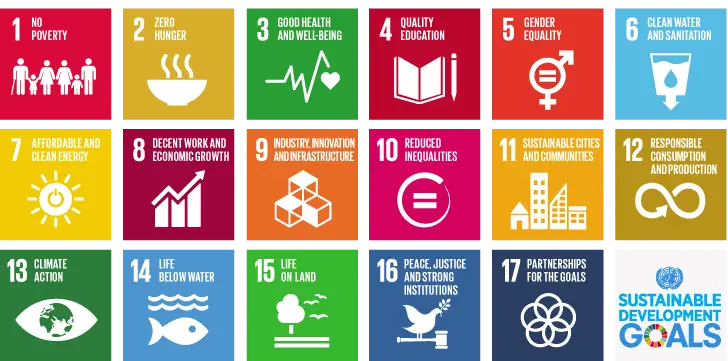Sustainable Laundry Policy
This policy outlines our commitment to minimizing the environmental impact of laundry practices. We recognize the importance of conserving water, energy, and reducing pollution associated with laundry detergents.

Our Sustainability Goals
To protect the health, safety, and quality of life of our employees and the public and to exercise responsible stewardship of natural resources.
Our aim is to manage our facilities, materials, products, waste, and energy in the most environmentally responsible way possible. So, we're committed to minimizing negative impacts on the earth's environment. The earth is our most important business partner, which is why we treat it with respect.
Water Conservation
- We will invest in water-efficient washing machines that use less water per cycle.
- We encourage practices like washing full loads and avoiding pre-rinsing whenever possible.
Energy Efficiency
- We will prioritize energy-efficient washers and dryers with high Energy Star ratings.
- We will promote washing clothes in cold water whenever possible, as hot water usage significantly increases energy consumption.
- We will ensure dryers are properly vented and maintained for optimal efficiency.
Sustainable Detergents
Green isn't a word that we just throw around. We don't expect our clients to take us at our word when it comes to environmental responsibility.
That's why we've invested in Green Certified laundry detergents to meet water and energy conservation standards and deploy best management practices in our operations. We take pride in not only knowing that we're green, but in adhering to the highest standards for laundry sustainability in our industry.
- We use GREEN, Vegan eco-friendly detergents that are biodegradable and free from harmful chemicals. These detergents are often concentrated, requiring less product per load, reducing water pollution, conserving energy, and being better for our health.
- We encourage practices like using the appropriate amount of detergent based on water hardness and load size using advanced automatic industrial dosing dispensers.

Additional Practices
- We promote air drying clothes whenever possible, reducing reliance on dryers.
- We will encourage the use of reusable laundry bags and minimize single-use plastics. (Biodegradable plastic bags)
- Reduction In Carbon Emissions
- Waste Reduction
- Repurposing & Recycling
- Reduced Pollution
- Non-Toxic
- Less Petroleum
- We will continuously seek new technologies and best practices to further reduce our environmental footprint.
Communication and Education
- We educate staff and customers about sustainable laundry practices to gain sufficient skills.
- We display informative signage about water conservation, energy efficiency, and the benefits of eco-friendly detergents.
Conclusion
When you outsource your laundry to us, you not only get to work with a green company, but we become business partners that are focused on a more environmentally friendly world. We are investing in the greenest laundry technology so that our business partnership can reduce its negative impact on the earth – that's why we're here!
By implementing this policy, we aim to reduce our environmental impact and contribute to a more sustainable future. We are committed to reviewing and updating this policy as new technologies and practices emerge.
Detail of Environmental Impact When Disposing Waste & Recycling Program in Place
When it comes to disposing of laundry waste, particularly from washing machines, there are several environmental impacts to consider. These impacts can vary depending on how the waste is handled and treated. Here are some details:
- Water Pollution: Laundry waste typically contains detergents, chemicals, and microfibers from clothing. When this wastewater is disposed of improperly, such as being dumped directly into water bodies or sewage systems without proper treatment, it can contribute to water pollution. Chemicals in detergents can harm aquatic life and disrupt ecosystems.
- Energy Consumption: The process of washing and drying clothes consumes energy, primarily electricity and sometimes water heating. The energy sources used to power these machines can have different environmental impacts, depending on whether they come from renewable or non-renewable sources.
- Microfiber Pollution: Synthetic fabrics like polyester release microfibers during washing, which are too small to be filtered out by wastewater treatment plants. These microfibers can end up in water bodies, where they can be ingested by marine life and enter the food chain, potentially causing harm to aquatic ecosystems and human health.
- Waste Generation: Beyond wastewater, there's also solid waste generated from laundry, such as lint from dryer vents and worn-out clothing. While lint can be biodegradable to some extent, large amounts of it can still contribute to landfill waste if not properly managed. Similarly, worn-out clothing can end up in landfills if not recycled or repurposed.
Implementing a recycling program can help mitigate some of these environmental impacts:
- Textile Recycling: Recycling programs can collect worn-out clothing and textiles, diverting them from landfills. These materials can be repurposed into new products or used as raw materials for other industries, reducing the demand for virgin resources.
- Efficient Machines: Encouraging the use of energy-efficient washing machines and dryers can help reduce the energy consumption associated with laundry. Additionally, using cold water for washing and air-drying clothes, when possible, can further minimize energy usage.
- Microfiber Filtration: Installing filters on washing machines or using special laundry bags designed to capture microfibers can help prevent them from entering water bodies.
- Proper Disposal: Educating individuals on proper disposal methods for laundry waste, such as using designated wastewater systems or sewage treatment plants, can reduce water pollution.
By combining proper waste disposal practices with recycling initiatives, the environmental impact of laundry waste can be minimized, promoting a more sustainable approach to managing household chores.


